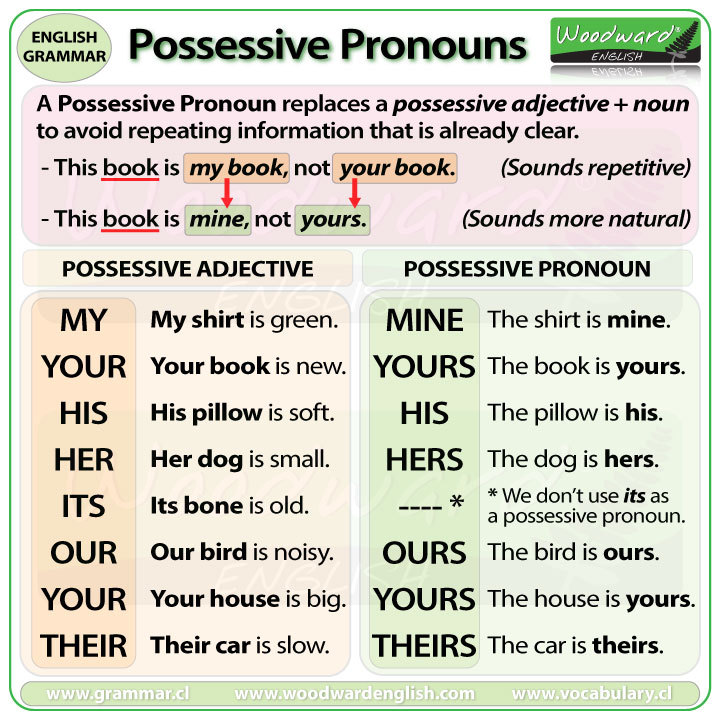Possessive Pronouns
English Grammar Rules
Possessive pronouns are used in English to avoid repeating information that is already clear. In general it makes the sentence less confusing because the same information is not being repeated.
This book is my book, not your book. (Sounds repetitive)
This book is mine, not yours. (Mine and yours are possessive pronouns)
In the sentence, mine is a possessive pronoun that replaces my book.
In the sentence, yours is a possessive pronoun that replaces your book.
The possessive pronouns in English are as follows:
| Subject | Possessive Pronouns |
|---|---|
| I | Mine |
| You | Yours |
| He | His |
| She | Hers |
| It | --- * |
| We | Ours |
| You (pl) | Yours |
| They | Theirs |
* We avoid using the possessive pronoun ITS.
Examples:
- I didn't have my umbrella so Marta lent me hers.
(I didn't have my umbrella so Marta lent me her umbrella). - Her car is faster than mine.
(Her car is faster than my car). - That food is ours and not theirs.
(That food is our food and not their food). - I know this drink is yours but I need to drink something.
(I know this drink is your drink but I need to drink something).
Remember that with possessive pronouns there are no apostrophes (').

Of yours
It is also very common to say a friend/some friends + of + possessive pronouns.
- I saw one of your friends last night.
I saw a friend of yours last night.
Both of these sentences are correct and both common in English.
Yours faithfully - Yours sincerely
Yours is also used in English with faithfully or sincerely at the end of a formal letter or e-mail. The two common expressions are:
- Yours faithfully (If it someone that you don't know)
- Yours sincerely (If it is someone that you know)
Next activities
Play an interactive game to practice this topic: Possessive Pronouns Game
See our grammar notes about Possessive Adjectives.
If you found this grammar guide about Possessive Pronouns in English useful, let others know about it.
